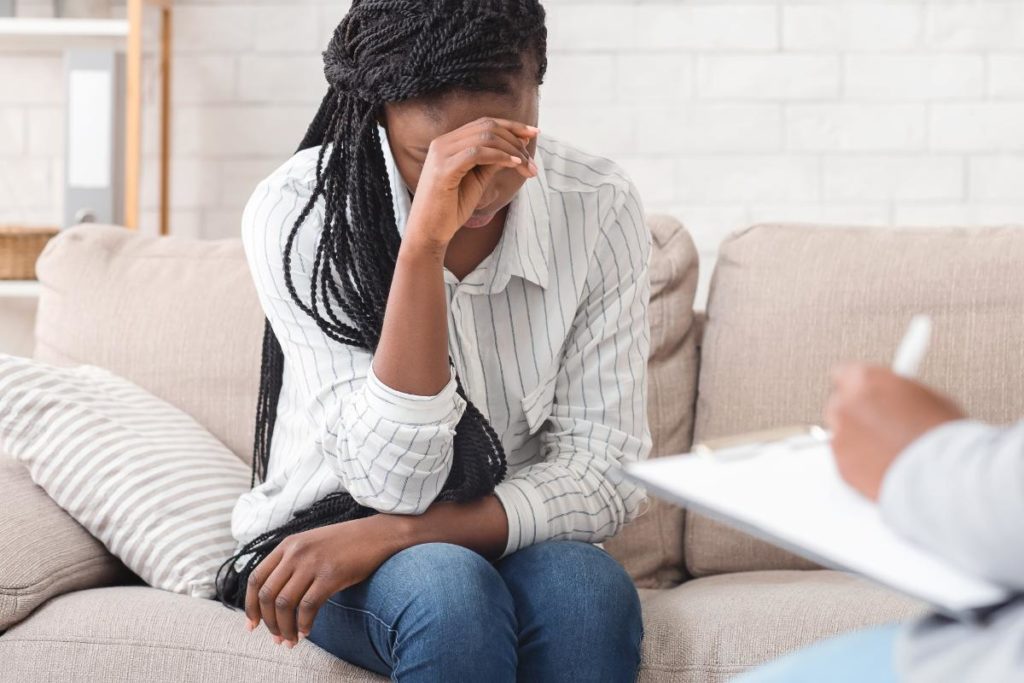Many people who struggle with a substance use disorder face other mental health challenges. This incident is something experts commonly refer to as a dual diagnosis or a co-occurring disorder. A co-occurring disorder can hold patients back from achieving health and wellness in recovery if left untreated. Fortunately, dual-diagnosis treatment in Nebraska is available.
The team at Northpoint Omaha knows how important it is to receive treatment for the full scope of mental health and addiction symptoms. Contact us today by calling 888.687.8014 to get started on the road to recovery.
What Is a Dual Diagnosis?
This term refers to people who have a mental health disorder alongside a substance use disorder. As such, they have dual diagnoses—one diagnosis for their substance use disorder and another for a mental illness. Many people also refer to these as co-occurring disorders.
Most of the time, dual diagnosis refers to a specific style of addiction treatment. Both addiction and mental health concerns are treated simultaneously at a dual-diagnosis treatment facility. The name “dual diagnosis” may imply that only two disorders are receiving treatment, but most facilities that offer dual-diagnosis treatment work to treat people with multiple diagnoses.
5 Common Dual Diagnosis Disorders
Substance use and mental illness frequently co-occur. The five most common dual diagnosis mental disorders are:
- Depression
- Anxiety disorder
- Post-traumatic stress disorder
- Borderline personality disorder
- Bipolar disorder
Frequently, people with these disorders turn to substance use to manage their mental health symptoms. This use can occur whether the person recognizes that they have a mental disorder or not.
Self-Medication and Dual Diagnosis
Using nonprescription substances to treat symptoms of a mental health disorder is called “self-medication,” a key driver in developing substance use disorders for many people.
For example, somebody with post-traumatic stress disorder may have frequent flashbacks and anxiety surrounding a traumatic event. They may discover that drinking alcohol reduces these symptoms and helps them feel normal. Unfortunately, these effects are usually short-lived. As they continue to drink, they become dependent on alcohol to deal with their symptoms and soon develop an addiction.
After a person has developed a substance use disorder, the symptom-easing effects of the substance begin to wear off. They need to use more to achieve the desired effect and experience intense withdrawal symptoms when they stop. These withdrawal effects can worsen the symptoms of mental illness, leading them to return to using in a destructive downward spiral.
What Is Dual-Diagnosis Treatment?
When people with a co-occurring disorder begin to seek out substance use treatment, recovery specialists must treat the dual diagnosis disorder for treatment to be truly effective.
Left untreated, people with co-occurring disorders have worse treatment outcomes and a higher likelihood of relapse. They will also continue to experience the negative mental health symptoms of their disorder.
Dual-diagnosis treatment treats both illnesses simultaneously. It brings together a multifaceted team of addiction and psychiatric professionals to work together to achieve better whole-person mental health. This collaboration means that a person will receive the best evidence-based treatments for their addiction and comprehensive mental health care.
Your treatment teams will collaborate with you to ensure that they meet your specific needs across all of your treatments. This communication might include:
- Informing your substance use counselor about specific trauma to ensure that they don’t risk retraumatization during therapy
- Indicating to your psychiatric team that certain medications are tied to your addiction, and inform them to use alternative treatment methods
- Making sure you are supported when experiencing mental health symptoms during treatment
All of these contribute to making sure your treatment is as effective as possible.
Start Recovery Today at Northpoint Omaha
When you’re ready to start treatment, the team at Northpoint Omaha is here to help. Our treatment team is equipped and trained to help people deal with multiple diagnoses, and we have extensive experience with the most common dual diagnosis disorders.
Call 888.687.8014 to speak with our admissions specialists and learn the next steps toward recovery. You can overcome your addiction, and Northpoint Omaha can help.

